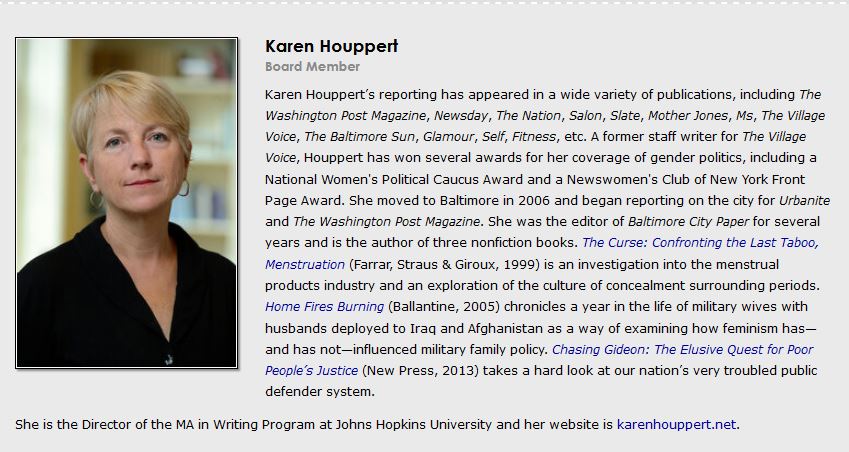Monday Miscellany - August 9, 2021
by Baltimore Review Staff Members
Happy Monday!
Last fall, we included an option to donate $5 when you submit and get “20 Prompts Inspired by Poems, Short Stories, and Creative Nonfiction Published in The Baltimore Review.” We’ll be offering a brand-new set of prompts soon—an extension to the original twenty. So, forty prompts, coming this fall.
There’s never any fee for our non-contest poetry, fiction, and creative nonfiction submissions, but we hope that you’ll consider donating, and getting something in return when we offer the new prompts collection. In the meantime, here are three from the first set:
This story by John Haggerty, “In the Moments Before the M Train Arrives,” begins with a man staggering at the edge of a train platform. In the author note below the story, he writes about the true incident upon which the story is based. Take some incident from your own life and change the facts so that the story’s outcome is different—and maybe surprisingly so—from what actually happened.
Read this poem by Shevaun Brannigan, “Frank Learns to Juggle During Quarantine,” and see how the poet takes the idea of learning how to juggle during a time of quarantine and gives it emotional power. Try incorporating some playful or other simple activity into a poem or story about a complex, perhaps darker, situation.
This story by Rachel Jamison Webster, “Independence Day,” begins with a description of the author’s memories as an “a flag-waving girl” enjoying traditional Independence Day celebrations and branches into a socio-political examination of the American stories we grew up with. Think of some holiday or other tradition you have taken at face value and explore its nature more deeply in a work of creative nonfiction.
_____________

I’d like to lift up our board members in this Monday Miscellany post. You’ll notice that they direct writing programs in two Baltimore-area universities. I’m proud to say that I have degrees from both universities. A bachelor’s in English from Towson University after (this is embarrassing) twenty and a half years and many majors. Long story. And raising kids. What can I say? A business certificate and master’s degree in writing from Johns Hopkins University (poetry and fiction) while employed in the School of Public Health. Another long haul. (Let’s hear it for the tuition remission benefit.) I learned so much from both schools, and I’m grateful.
The Baltimore Review continues to be an independent organization, without the administrative oversight (or budget) of a university publication, and I treasure that independence. But having board and other staff members over the years with faculty positions in writing programs, who generously volunteer their time to help us, has been tremendously beneficial. How I talked Michael Downs and Karen Houppert into serving as board members I’ll never know. But I did, and I’m grateful. Here they are, from our Staff page, with their website links below. Read their publications. Buy their books. If you see them, thank them for serving the literary community.


__________
The Jesup Library—Bar Harbor, Maine
I love to visit libraries. Anywhere I travel, I seek them out. On my recent trip to Maine, I visited one of my favorites. The Jesup Library in Bar Harbor, like all libraries, is a hub of the community. In fact, Jesup is lovingly referred to as “Bar Harbor’s living room.”
For the past few years, I’ve followed their journey of repairs, renovations, and the hope of expanding the building. Then, as with every other place and person in the world, COVID created a roadblock.

On my trip last year, the library was closed, but this year I had the opportunity to chat with a librarian who filled me in on “What’s up at Jesup” (her words) once I told her I wanted to talk about the library for our Monday Miscellany.
The Jesup has long outgrown the space for its children’s section. Both children’s and young adult books are in a smallish room that’s overcrowded and doesn’t really allow for the kind of space that young people need to enjoy the library. Additionally, because of Bar Harbor’s connection to the Rockefellers, the Jesup stores a significant amount of the Rockefeller papers but has no safe space to properly archive or exhibit them. The new wing will help with this. Exciting, right?
Well . . . the original building is old. It lives on an island in New England. Cold, wet, salty, windy. And if you’ve ever owned an old house or car, you’re aware that they have a way of knowing when you get a little extra money. The Jesup had received some really great donations and was closer to the new wing becoming a reality. Then the building flooded. Twice. The library spent most of last winter wrapped in plastic, with workers having to repair the majority of the mortar in the brick exterior. If there was a silver lining to the pandemic, at least for Jesup, it’s that they were able to be closed for much of the repair time.
Long story shortened—when I asked when the new construction would start, the answer was pretty simple. When the money happens.

Libraries are so much more than a place to borrow books. It would seem like the finances of a library in a resort town would reflect its affluent surroundings. However, libraries are usually among the last on the list when government money is handed out. In fact, in many states and municipalities (including Baltimore County), much of the government funding for libraries is based on how much community engagement happens at a branch. More events, more people, more money. More money, more events, more people. Then, throw in a pandemic. No in-person service equals limited library events and limited resources. Libraries depend heavily on donations. Those who rely most on library programs—children’s summer lunches, job search help, free computer use, senior programs—are least able to donate. It’s a cycle of money madness, and in the shadow of the fancy hotels and whale watch cruises, Bar Harbor has its share of community members in need.
So . . . if I haven’t painted too Dickensian a view of the library situation, and you’re still reading this, I hope you’ll help a library.
Any library.
__________
It’s always a great idea to pass your work around to beta readers before sending it out for publication. In fact, it’s crucial. Even people who aren’t in the writing sphere can offer feedback and ideas to improve your work that you never would have considered.

Unfortunately, if your friends and family are anything like mine, they’ll be hesitant to critique your work. They'll say they don’t know much about the craft and wouldn’t be able to offer any worthwhile feedback. I know this isn’t true; we all watch TV shows and movies and have opinions on why we think they’re good or bad. Writing shouldn’t be any different.
I recently saw a trick to use when asking these readers for feedback (from author Mary Robinette Kowal). Usually, we just ask them to get back to us with their general thoughts. This is too vague and can lead to the readers simply saying they liked it without offering any ideas for improvement. But if you stick to the ABCD system, your feedback will be much more valuable and usable.
Ask your readers:
What’s Awesome about the piece?
What’s Boring about it?
What’s Confusing?
What Didn’t you believe?
At the end of the day, if your readers answer these four basic questions, you will have a trove of useful information you can use to tweak your piece. The more feedback the better, and the bigger advantage you'll have when sending your work out for publication.
